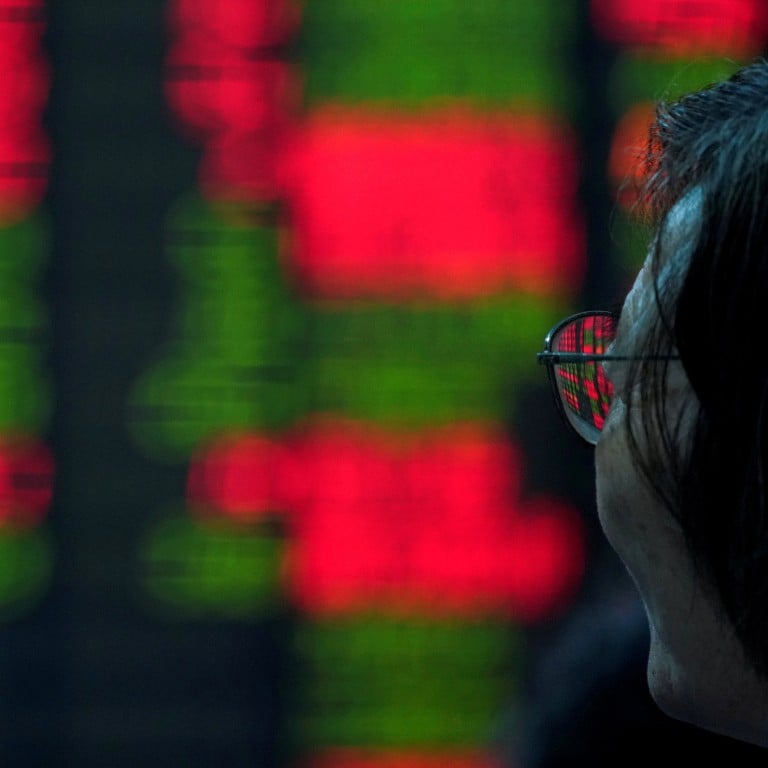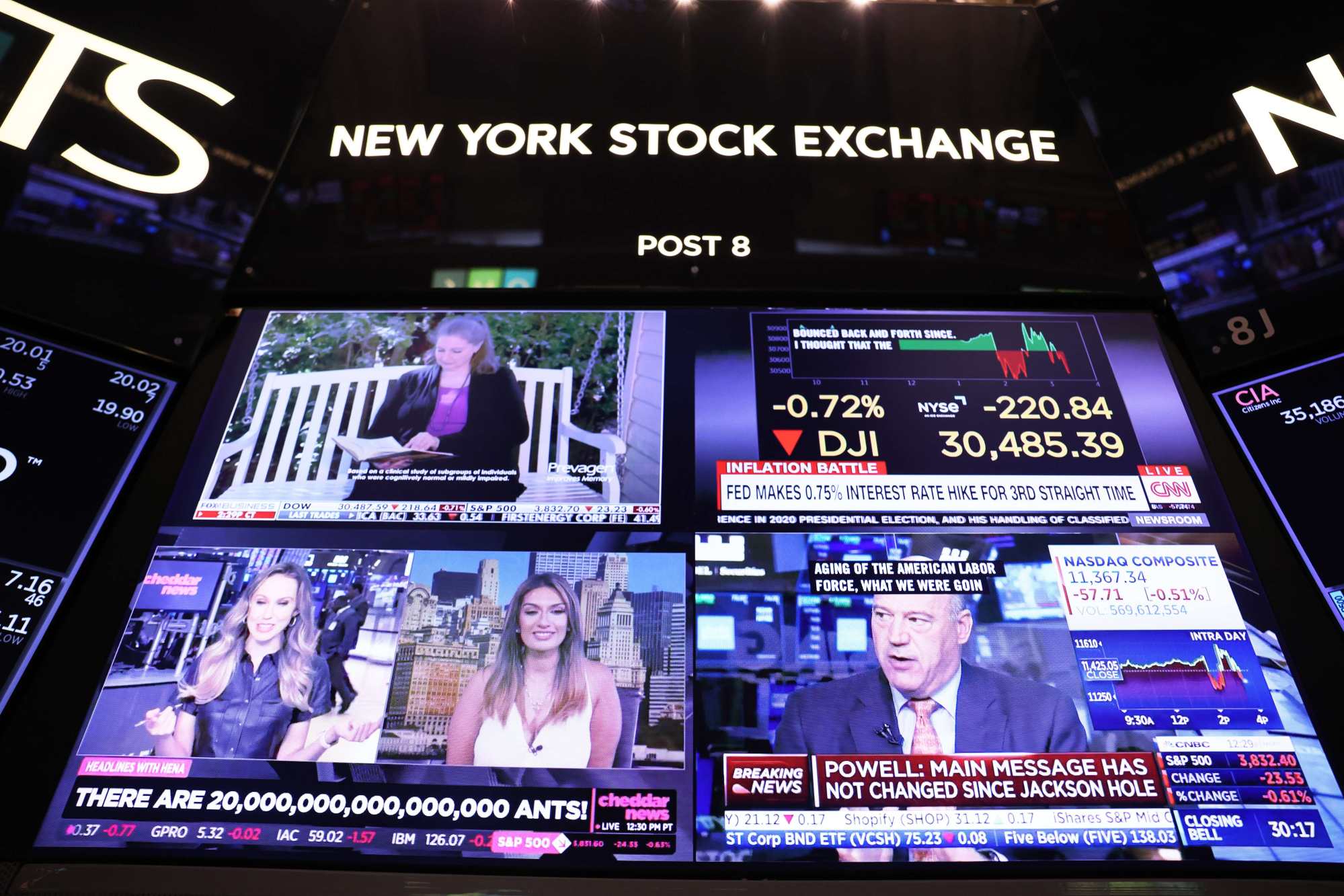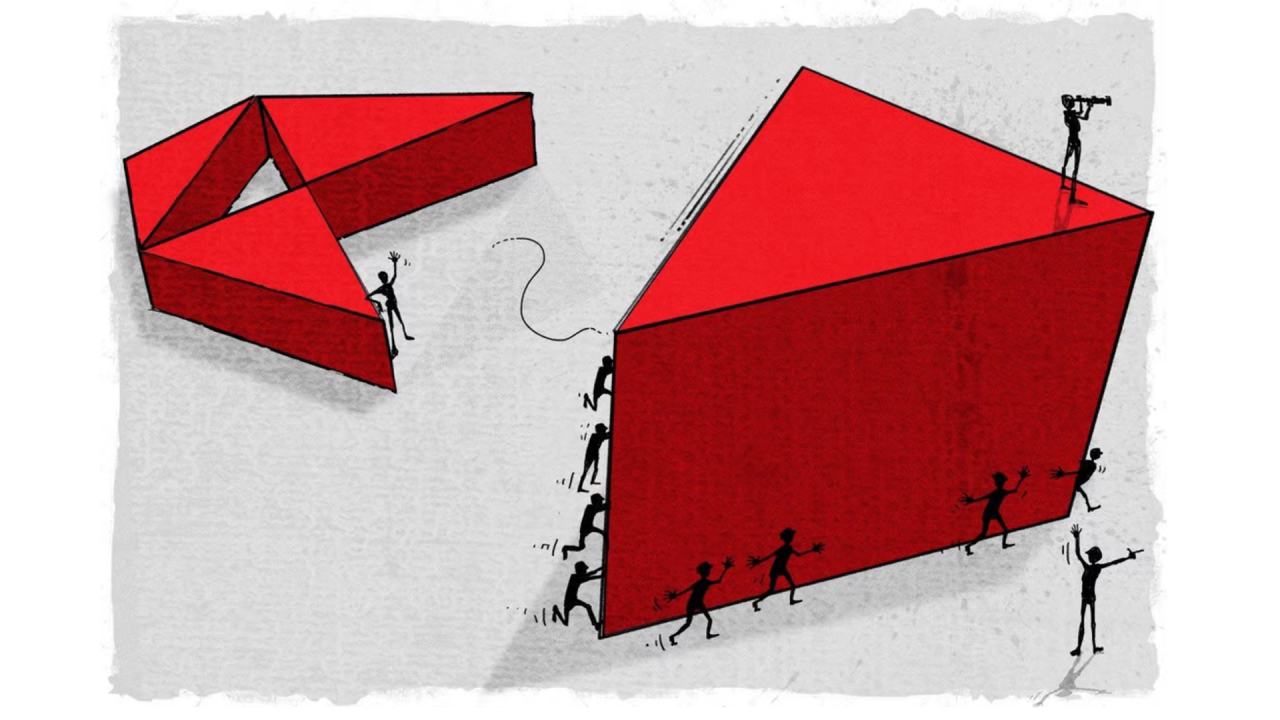
Hong Kong stocks sink to lowest since 2011 as rate increases shake market confidence, heighten recession worries
- The Hang Seng Index slipped to the lowest level since December 2011 as Alibaba, Tencent led tech losses, while HSBC and Sun Hung Kai tumbled
- The HKMA raised its base rate to 3.5 per cent, the highest since the global financial crisis in 2008, in lockstep with the Fed’s 75-basis point tightening
The Hang Seng Index tumbled 1.6 per cent to 18,147.95 at the close of Wednesday trading, a level not seen since December 2011 while key markets in Asia-Pacific declined by 0.6 to 1.6 per cent. The Tech Index lost 1.7 per cent while the Shanghai Composite Index declined 0.3 per cent.
Sixty-two of the 73 Hang Seng index members fell, as did all members of the finance and utilities sub-indices. The Hong Kong stock market had lost US$1.2 trillion of capitalisation this year before Thursday, while the benchmark index suffered more than 21 per cent erosion.
Alibaba Group tumbled 2.6 per cent to HK$80.85, lowest since mid-March, while Tencent Holdings retreated 1 per cent to HK$283, a four-year low. JD.com, Baidu and Lenovo Group lost 2 to 3.1 per cent, and Macau casino operators Sands China and Galaxy both declined by over 2.5 per cent.
“We expect equity markets to continue to remain under pressure with tighter policy,” said Ray Sharma-Ong, investment director for multi-asset solutions at abrdn, a UK-based money manager. “Higher restrictive rates, slows demand and results in demand destruction, causing corporate earnings growth to decline.”
The Fed raised its target interest-rate range to between 3 and 3.25 per cent late Wednesday, warned of more pain ahead and pledged to “keep at it” on policy tightening to bring its target inflation to 2 per cent or slower. US prices rose at an annual rate of 8.3 per cent in August, near the highest in four decades.

The losses were in tandem with declines in markets around the region, after the S&P 500 Index retreated 1.7 per cent in overnight trading as the hawkish Fed surprised economists banking on guidance for an earlier easing path. That will not come before 2024, said Christian Scherrmann, an economist at DWS Group.
“Relaxation of the tighter stance, moreover, is going to take a long time,” he added. “Only in 2024 does the Fed expect lower rates to be warranted.”
The tone of the committee was hawkish given policymakers are “highly attentive” to taming inflation, said Tai Hui, chief market strategist for Asia-Pacific at JPMorgan Asset Management.
“Strong job growth and persistent excess demand for labour suggest a soft landing is still possible,” he said. “However, aggressive Fed tightening keeps the probability of recession sometime next year elevated.”
Today’s sell-off, however, did not diminish the appeal of PowerTECH Co, whose shares surged 41 per cent to 135.96 yuan on the first day of trading in Shenzhen.


